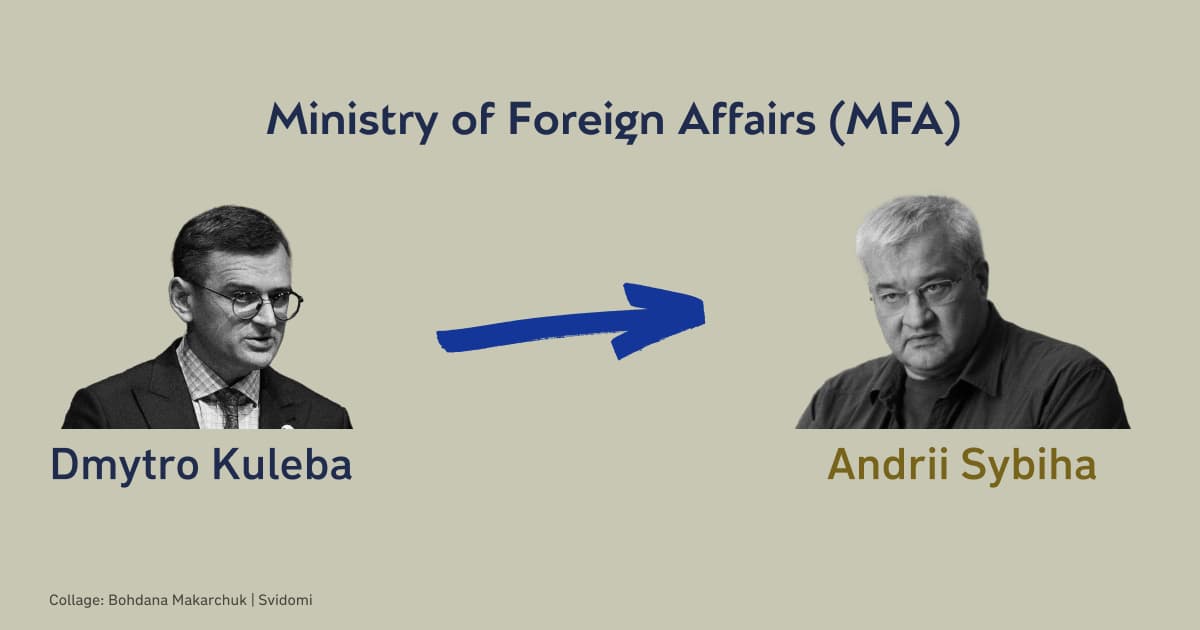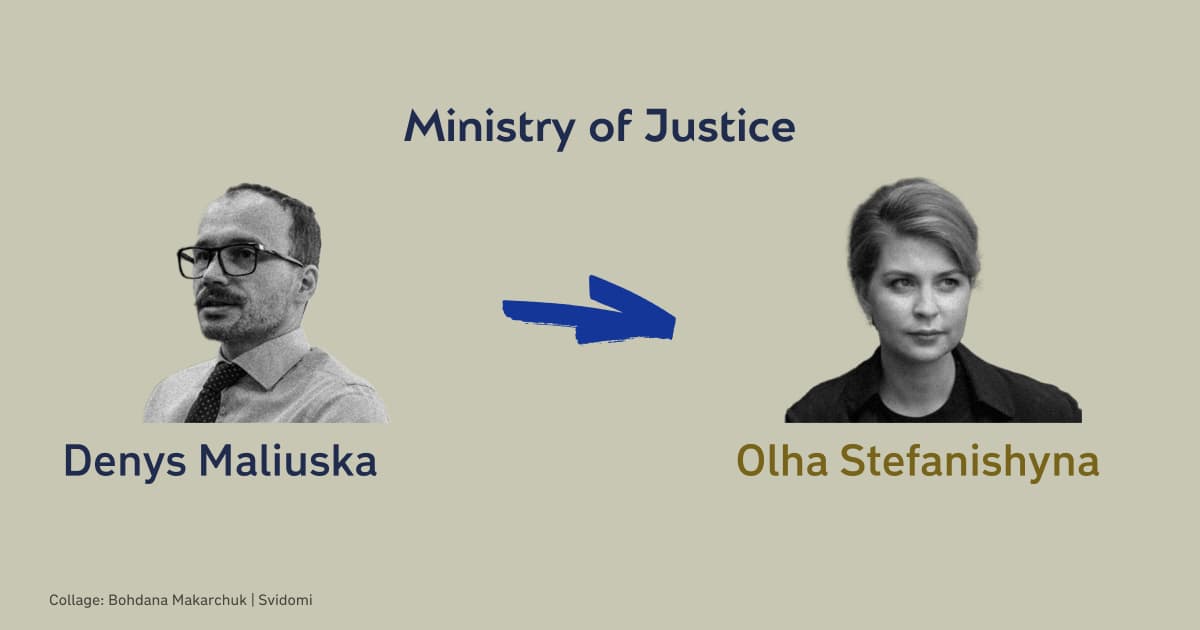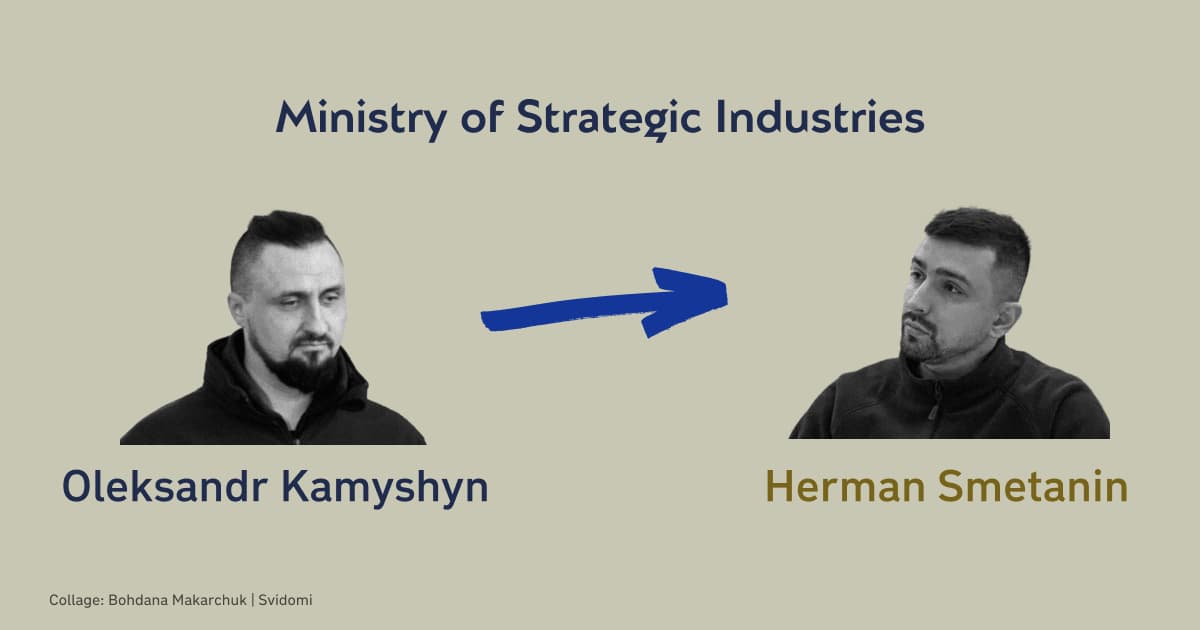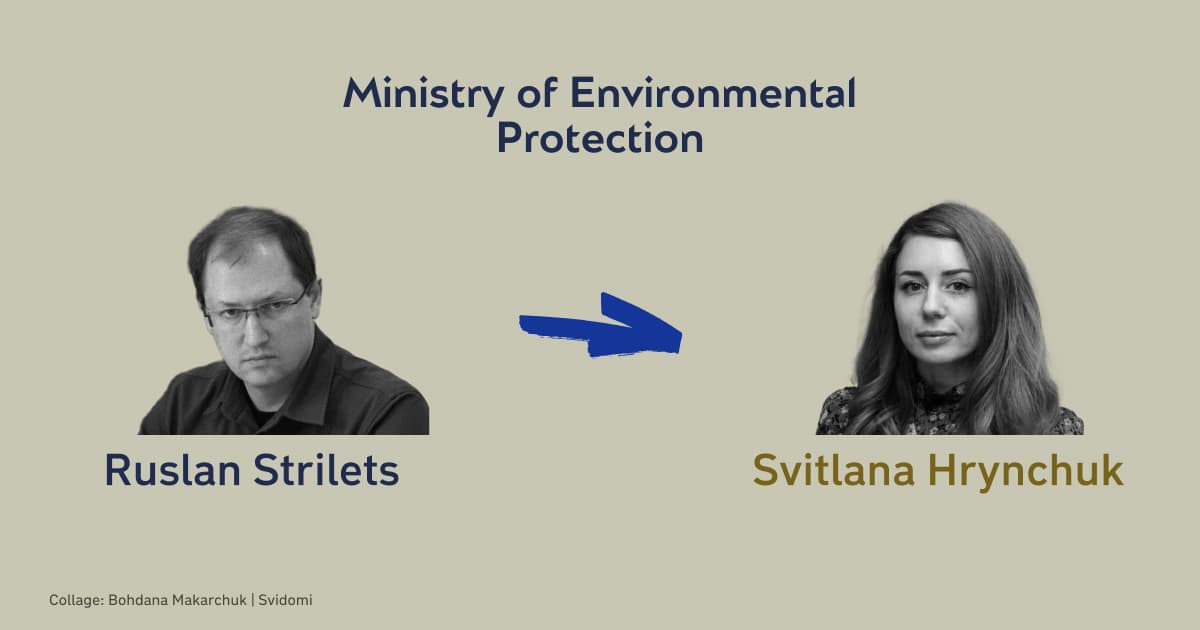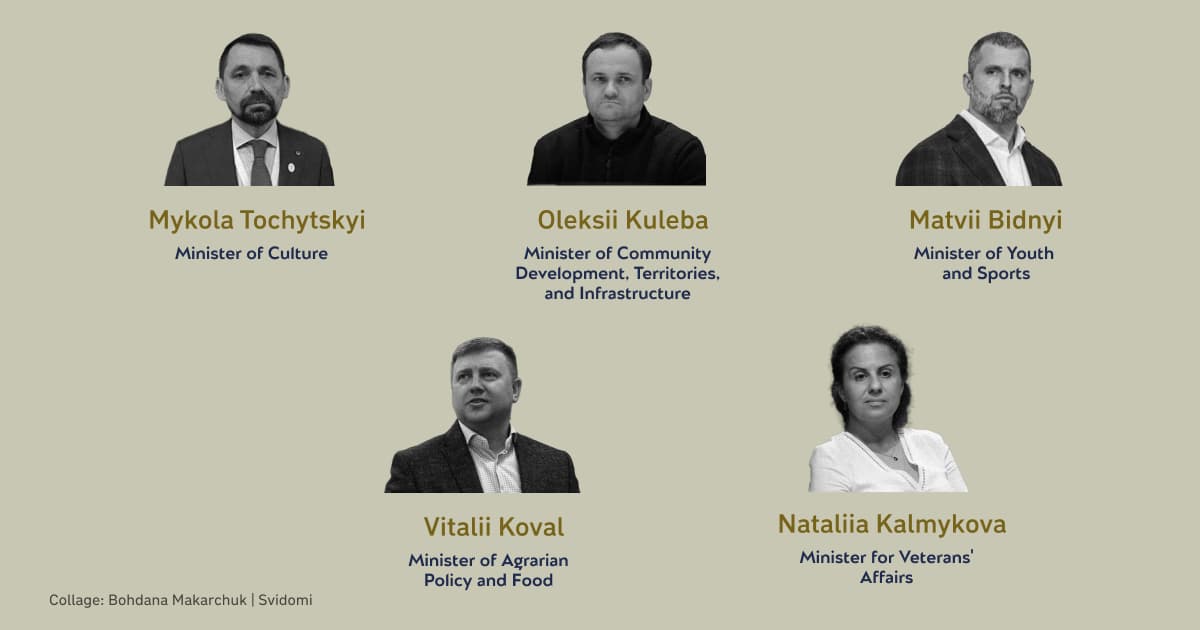The Great reset of the government. What do we know about the new ministers?
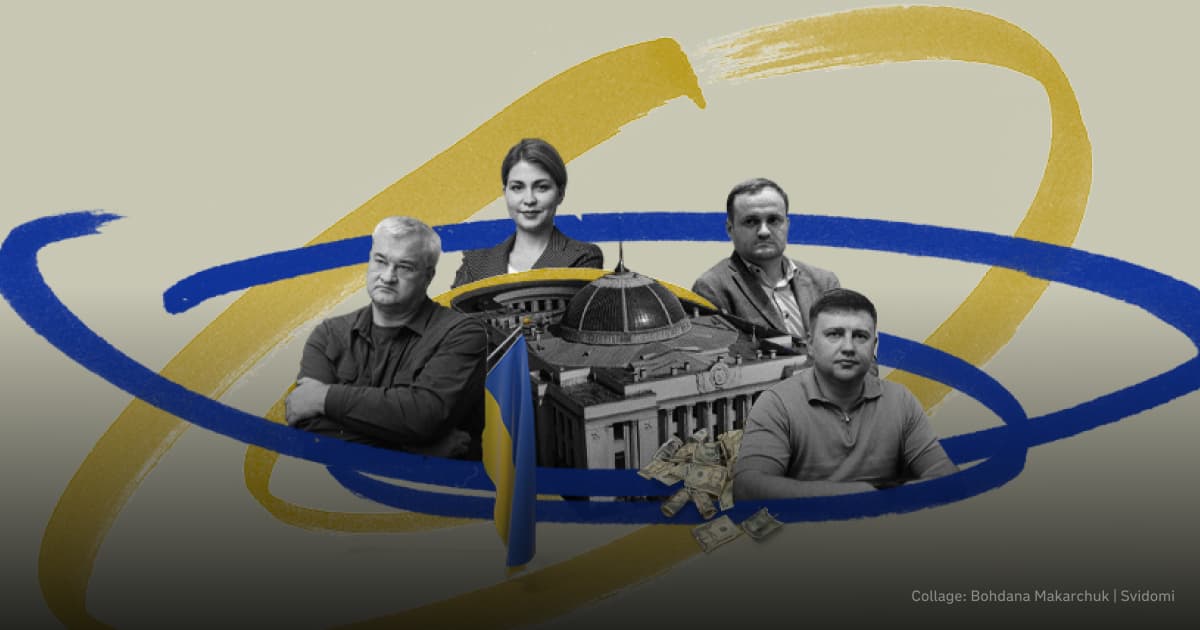
In February 2024, president Zelenskyy announced a "reshuffle" of the government team. The first change was the dismissal of Valerii Zaluzhnyi and the appointment of Oleksandr Syrskyi as Commander-in-Chief of the Armed Forces. Since then, no significant changes have occurred to the government or the presidential team. In May 2024, only Oleksandr Kubrakov was dismissed from his post as Minister of Infrastructure of Ukraine.
Until several ministers resigned on September 4, 2024. Afterwards, the leader of the Servant of the People (Sluha Narodu) faction published a list of candidates for the positions to replace those who had resigned.
Svidomi explains the new ministers and why the government has just undergone its most significant reshuffle since Russia's full-scale invasion of Ukraine began.
Changes in all directions. Who was dismissed from the cabinet?
On September 4, 2024, a decision to dismiss the ministers of foreign affairs, veterans' affairs, justice, agricultural policy, environmental protection, reintegration and strategic industries was submitted to the Verkhovna Rada (Ukrainian parliament).
The Verkhovna Rada was expected to convene and approve the dismissals of Dmytro Kuleba, Iryna Vereshchuk, Denys Maliuska, Oleksandr Kamyshyn, and Ruslan Strilets. In addition, Olha Stefanishyna, Deputy Prime Minister for European Integration, submitted her resignation.
The Verkhovna Rada was also expected to appoint new heads of the Ministry of Culture and Information Policy and the Ministry of Community Development, Territories and Infrastructure. Acting ministers had headed these ministries. Rostyslav Karandeiev had been acting Minister of Culture and Information Policy for over a year, since July 2023.
At a press conference with Irish Prime Minister Simon Harris, President Zelenskyy said that changes in the government were necessary to "strengthen the country". He thanked the ministers who were to be dismissed by the Verkhovna Rada.
On September 4, MPs began voting on the dismissals. However, not all of them were immediately approved. For example, the dismissal of Iryna Vereshchuk was rejected, with only 214 MPs voting in favour. Dmytro Hurin, an MP from the Servant of the People party, said that MPs had demanded a report from Iryna Vereshchuk before dismissing her.
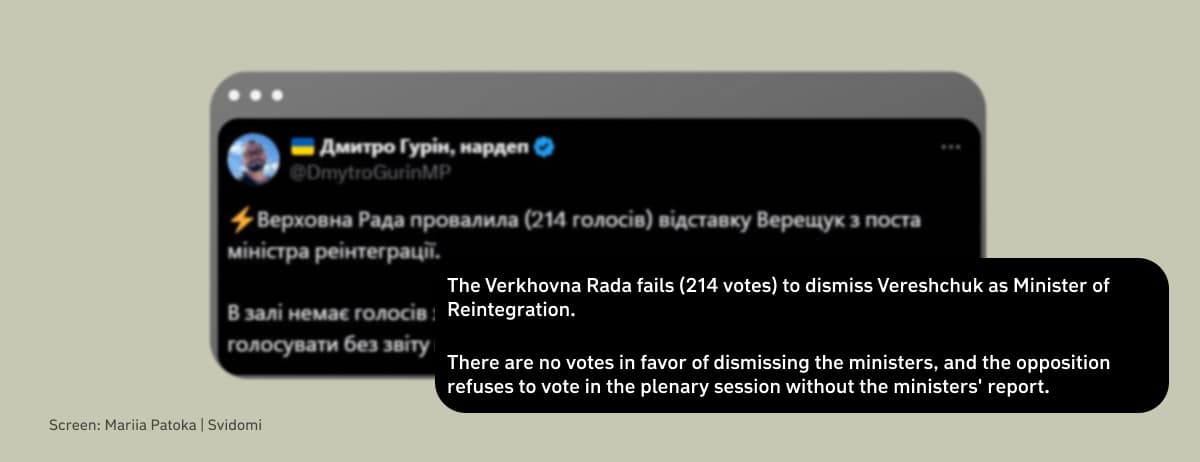
Questions about Iryna Vereshchuk had been accumulating for some time, particularly in relation to support programmes for internally displaced persons (IDPs) and the evacuation of Ukrainians from the Temporarily Occupied Territories (TOT). Volunteers told Svidomi that the Ministry of Reintegration was not working effectively with people in these areas. Voluntary organisations mainly carried out evacuations. Some volunteers also reported being blocked from commenting on Iryna Vereshchuk's posts on her official Telegram channel.
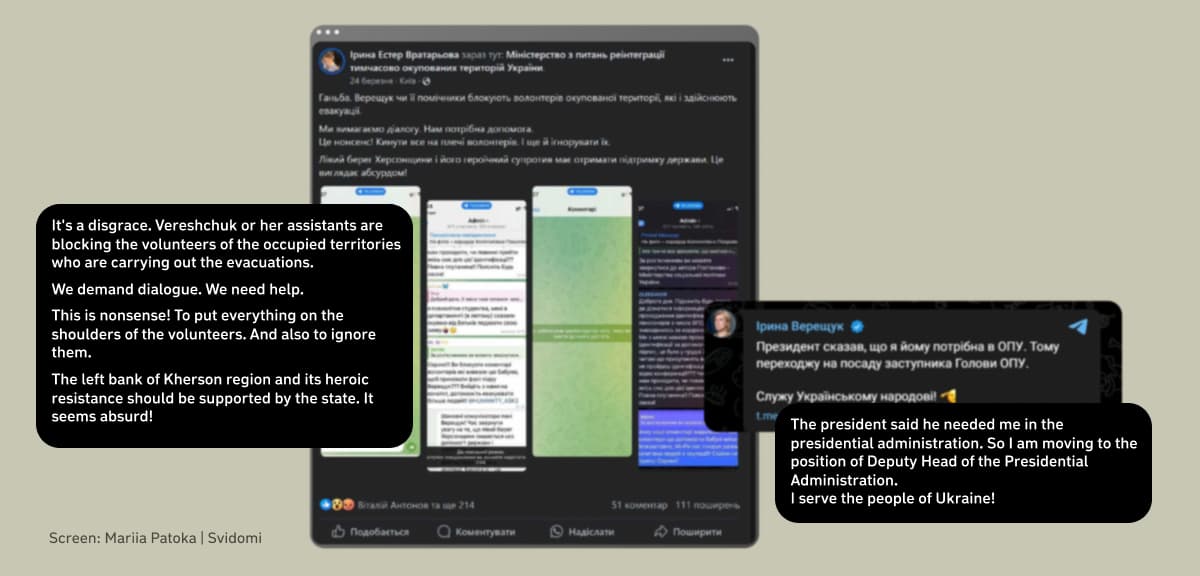
Iryna Vereshchuk will continue working as the deputy of the Head of the Office of President Andrii Yermak.
One of the resignations that caused mixed reactions in the Ukrainian and foreign media was the dismissal of Dmytro Kuleba as Foreign Minister. Kuleba had earned respect among foreign diplomats in Kyiv and the West. However, The Economist reported that Kuleba did not always coordinate his diplomatic approach with the President's Office and sometimes conducted autonomous communications.
In July 2024, the Ukrainian Ministry of Foreign Affairs (MFA) account published a post about Russian actress Chulpan Khamatova. She was expected to attend the premiere of her film "Quiet Life" at the Venice Film Festival in September 2024. The MFA posted a video showing Khamatova's previous support for Vladimir Putin's policies. In 2022, she did not support the Russian invasion and moved to Latvia. Russian opposition figures in exile supported her. The post was later removed from the MFA's account.
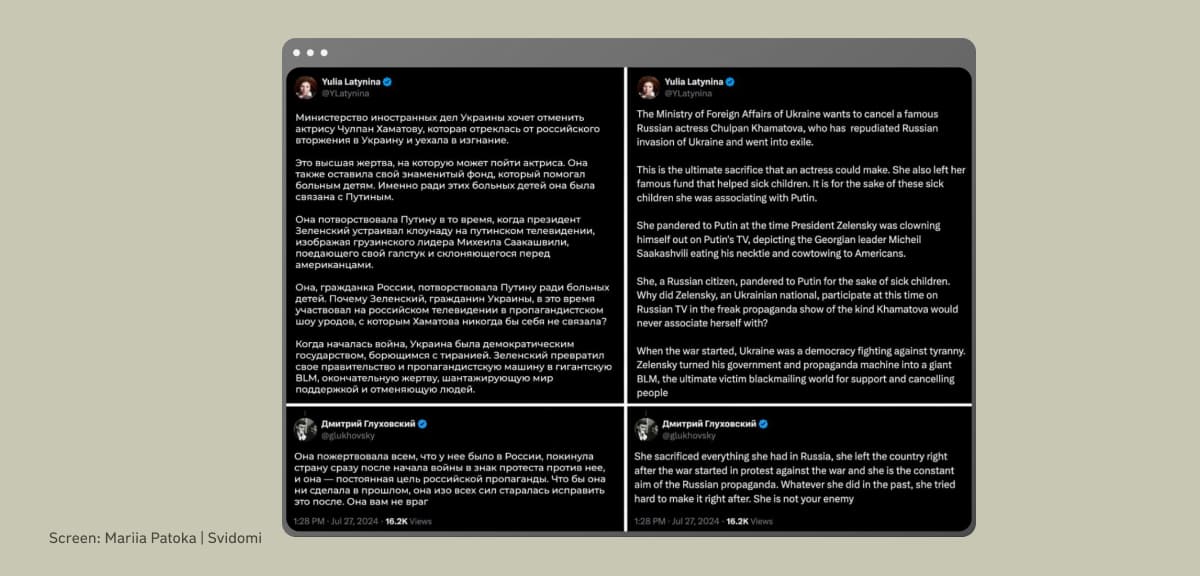
Despite internal disagreements, Dmytro Kuleba left a lasting impression on Ukraine's partners. German Foreign Minister Annalena Baerbock expressed her regret at his resignation, saying: "You put the people of your country before yourself. All the best from the bottom of my heart. We shall meet again when peace and freedom finally has returned to all of Ukraine."
The president's people: Where the new government ministers came from
One of the most significant changes between the President's Office and the government took place in April 2024. At that time, Andrii Sybiha, Deputy Head of the President's Office, was transferred to the position of First Deputy Minister of Foreign Affairs under Kuleba.
On September 5, 2024, Andrii Sybiha was appointed as the new Minister of Foreign Affairs.
Andrii Sybiha is a career diplomat. He worked as the director of the consular service department of the MFA of Ukraine, served twice in the Polish embassy, and was Ukraine's Ambassador to Türkiye from 2016 to 2021.
No significant changes are expected in the work of the Ukrainian Ministry of Foreign Affairs under the new minister. Former Foreign Minister Pavlo Klimkin believes that Sybiha's previous work in the President's office will only make it easier for him to understand the diplomatic line that the President of Ukraine is pursuing.
Hanna Hopko, a former member of parliament and head of the Network for the Protection of National Interests "ANTS", says that the most important thing is to preserve the independence of the Ministry of Foreign Affairs.
"The question at the moment is not about the rotation of the head of the Ministry of Foreign Affairs. The question is whether the Ministry of Foreign Affairs will have the independence to shape policy or whether it will just be an auxiliary structure. Coordinating meetings with the ministry, with the minister, with civil society, discussing the advocacy campaigns we used to have — HIMARS, F-16, tanks, armaments — everything is critical. At the moment, we have a campaign for the recognition of the Russian aggression as genocide. That is why it is also essential how much there is an understanding that we are working for Ukraine's victory and not just for the dispersion of efforts,"
she says.
Olha Stefanyshyna has been appointed Minister of Justice and reappointed Deputy Prime Minister for European Integration. The Ministry of Justice will be responsible for adapting Ukrainian legislation to EU provisions.
Olha Stefanyshyna is accused of embezzlement in the "Lukash case". The case has been under consideration by the High Anti-Corruption Court for over a year. Former Justice Minister Olena Lukash ordered "research on European integration" in 2014. Olha Stefanyshyna was then head of the European integration unit and signed the tender for these services. During this tender, law enforcement authorities believe that more than two million hryvnias were embezzled from the Ministry of Justice. Olha Stefanyshyna has stated that she is cooperating with the investigation in this case.
Mykola Tochytskyi became the new Minister of Culture, and Oleksii Kuleba became the Minister of Community Development, Territories, and Infrastructure. Both came to the government from the President's Office. Tochytskyi is a career diplomat. Oleksii Kuleba was previously the head of the Kyiv Regional State Administration. Oleksii Kuleba's figure is unpopular among deputies. MP from the(Holos) faction Yaroslav Zhelezniak reported that the Servant of the People(Sluha Narodu) faction gave him only 167 votes — the smallest number among all votes for new ministers.
Matvii Bidnyi was appointed Minister of Youth and Sports. He is the only acting minister who received an official promotion.
Vitalii Koval, former head of the State Property Fund, became the Minister of Agrarian Policy and Food. On September 4, the Verkhovna Rada failed to vote on his resignation from the position of head of the fund. Only on September 5 were they able to gather the necessary votes for this. Before this, Vitalii Koval headed the Rivne Regional State Administration from 2019 to 2023.
Nataliia Kalmykova was appointed Minister for Veterans' Affairs. She moved from the Ministry of Defence, where she served as Deputy Minister for Social Development. Svitlana Hrynchuk became the Minister of Environmental Protection. She moved there from the Ministry of Energy, where she was the Deputy Minister under Herman Halushchenko.
Herman Smetanin was appointed Minister of Strategic Industries. He had previously headed the Ukrainian Defence Industry Association (formerly Ukroboronprom). During the war, Smetanin managed to reorganise the state defence industry corporation into a full-fledged joint-stock company. Meanwhile, Oleksandr Kamyshin moved to work in the President's Office.
The great reset: Why these changes are happening now
The reshuffle of ministers had been planned for some time, with various options being considered. In July, Ukrainska Pravda reported that the President's Office was planning the resignation of Prime Minister Denys Shmyhal, along with the entire government. One of the candidates for Shmyhal's position was Minister of Economy Yuliia Svyrydenko.
The replacement of ten ministers shows that Denys Shmyhal's government has decided to stay in place. However, most of the new ministers are linked to the Office of the President. According to Ukrainska Pravda, Volodymyr Zelenskyy said that "even strong ministers, after several years of daily hard work, simply cannot cope with the workload they are facing".
On September 4, Volodymyr Zelenskyy officially stated that Ukraine needs new energy and that the changes in the government are related to strengthening the state in various areas.
"International politics and diplomacy are no exception. Today, I cannot predict exactly what this or that minister will do. There will be answers when certain positions are proposed to them. It's too early to talk about it for now,"
the President said.
Hanna Hopko says that the reshuffling in the Cabinet should demonstrate the motivation behind these dismissals and appointments. The question is whether those initiating the replacements are ensuring security guarantees for the country and what these changes will bring to Ukrainian politics.
"The issue is not about changing names, but the system that should allow the minister to work effectively with the appropriate powers rather than simply being part of a vertical structure. That's why it's important to determine what governance model the country has in times of war and whether there is respect for the different branches of power. I think a victory strategy is crucial. The president has to present it. Our partners will provide us with the necessary resources based on this strategy for Ukraine's victory. And this is not secret information," says Hanna Hopko, referring to the potential goals that the new government ministers should address.
Volodymyr Zelenskyy hopes that the rotation of personnel will bring changes to the state’s policies. The only question is whether these changes will benefit the country in a state of active war.

